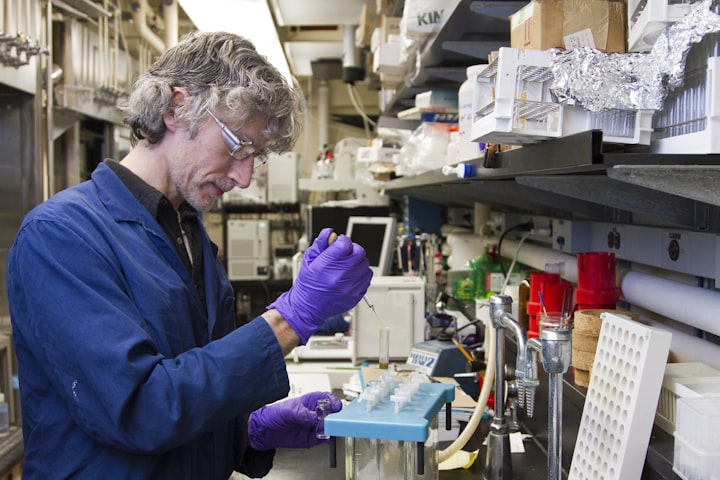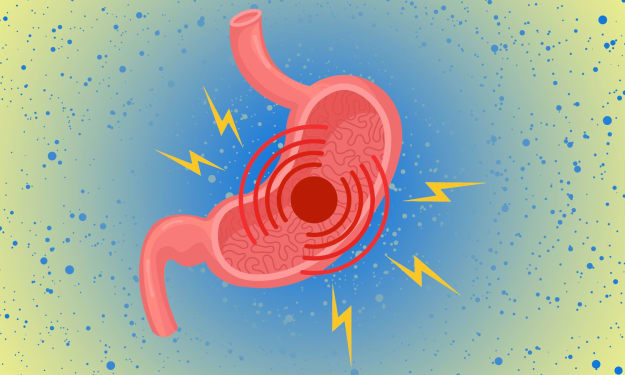What I learned from DNA Tests
Importance of epigenetics for a healthy and happy life

Genetics versus epigenetics became a popular topic in health circles.
DNA tests are debatable. DNA testing looks like a two-edged sword, but understanding the power of epigenetics can address the common concerns.
I want to share key points on DNA tests and my personal views based on my experience. I also acknowledge the common concerns in the literature related to genetics and DNA information and provide my approach to address these concerns.
Genetics and DNA testing have been a compelling interest to me. From a technological standpoint, it is an innovative and useful technology. From a personal development perspective, it is an insightful tool.
However, genetics information is considered evil by some people. Even my family physician did not support my choice for DNA testing. One of the physicians characterized it as waste money. I have compassion and respect for opponent views as they have personal and scientifically proven reasons.
DNA testing for personal information is one of the controversial topics globally. There are mainly three groups. People in the first group support it. Those who are in the second group are against it. People in the third group are not aware of it or do not care about it.
Those who are against it mainly concerned about unnecessary anxiety it creates for the future events forecasted in the test reports.
Some limited studies confirmed the anxiety-inducing situations for DNA test data. For example, the study titled "Learning one's genetic risk changes physiology independent of actual genetic risk" reflects these concerns.
Even though I agree about the negative implications of DNA information on some people, my personal view, with due respect, is different.
I see DNA testing as a mirror to our future health reflected from our past (genetic code). Our genes determine our health to some extent, but environmental, emotional, mental, and biological factors play substantial roles too.
There are various genetics tests. The most common ones are carrier testing, newborn screening, forensic testing, ancestral testing, diagnostic, predictive, and pre-symptomatic testing. My interest was in the last two.
My open and growth mindset compelled the information and insights from the DNA tests. I saw it as an adventure and prepared myself for the process.
Before taking my DNA tests, I conditioned myself that this was the only indicative information. It did not mean that I had the indicated condition. It did not guarantee that I would catch this estimated disease to be caused by my faulty genes. This conditioning was beneficial to prevent me from potential anxiety.
I took the plunge and got my DNA tests.
The results arived after three weeks.
Two crucial benefits for the test results attracted my attention.
- The first one was to learn about my heritage. To my surprise, my gene pool was from five different cultures. The predominant one was representative of my behaviour and health conditions. My dietary estimates based on my ancestors were spot on.
- The second important point was my current genetic status and the risk factors for my health based on gene types. The report came with a broad set of data but with a little explanation. They referred to qualified health professionals to interpret the data.
This health information provided useful insights to take necessary actions proactively. Contrary to claims for anxiety, knowing my weaknesses and risks did not create concerns for me.
The knowledge of epigenetics helped me become a better consumer of genetics tests. As DNA data is comprehensive and convoluted, I also leveraged the expertise of genetics consultants to interpret data in detail. The insights worth the investment.
The body of knowledge in genetics taught us our genes could determine our future. However, the emerging discipline of epigenetics informed that our genes could be turned on or off by other factors such as diet, nutrition, stress levels, environment, and more.
For example, while one of my parents is diabetic, I am not because with this information, I adjusted my diet to keep my insulin levels in an optimal state. There are many more examples like this in my transformation journey.
Epigenetics is an emerging science focusing on changes in organisms caused by changes of gene expression rather than changes of the genetic code itself.
When I discovered epigenetics, my outlook on life situations transformed into a more optimistic and joyful state. I learnt that we are not slaves of our genes anymore.
We have the power to turn on the good ones and turn off the bad ones based on our life choices and actions. It is refreshing to have such a compelling option in life. It helps us design our life.
-------
Disclaimer
The original version of this story was published in another platform under a different title.
Reference
Simple & Powerful Life-Transforming Bio-Hacks by Dr Mehmet Yildiz
Connection
Join my mailing list to stay in touch and get insightful content
About the Creator
Dr Mehmet Yildiz
I'm a writer and published author with four decades of content development experience in business, technology, leadership, and health. I work as a postdoctoral researcher and consultant. My background is at https://digitalmehmet.com.






Comments
There are no comments for this story
Be the first to respond and start the conversation.